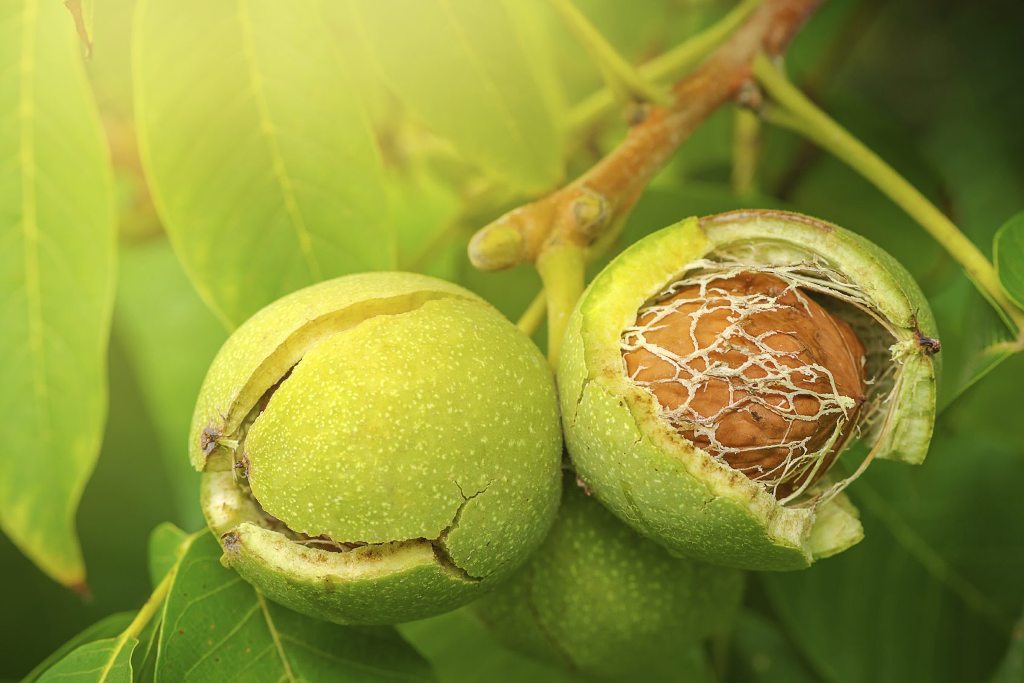How to Grow and Care for Walnuts Tree

Walnuts have a slightly bitter flavor and are extensively used in most bakery products. The different culinary uses, health, skin, and hair benefits help you acquire glowing skin, strong hair, and a healthy body. It is also involved in several skincare products for its rich nutritional advantages. Omega 3 fatty acids in walnut are quite good for a healthy brain. Consume foods with high Omega 3 fatty acid content to retrain your nervous system working easily and to improve your memory efficiency. Walnut is high in fiber that helps preserve the health of your digestive system.
The walnuts also provide the daily requirement of fiber for a proper bowel movement. It is rich in protein sources like meat, eggs, and dairy products that do not contain fiber. Walnuts should be consumed daily to keep your digestive problems at recess, and they are also best known to boost immunity. The good amounts of antioxidants keep the immune system healthy and defend it from many illnesses. The buds rouse from winter dormancy in mid-April to late May, and leaf fall occurs in early November. The large composite leaves give off a citron scent after crushing.

Soil Requirement
The plant prefers deep, fertile, and well-drained loam soil with a pH lying in the range between 6 and 7. There also exist specimens that grow in heavy clay on the river banks and allow a wide variety of soil conditions.
Sunlight Needed
The best locations for walnut trees are sunny, moderately sheltered sites by avoiding frost pockets.
Fertilizers
It is generally recommended not to add compost to the roots of walnuts while planting the trees outdoors. You can add just a little top dressing compost to the newly planted trees.
Diseases Affecting Walnut Trees

Walnuts are prone to many diseases. Some of them are listed below:
- Codling moth
- Navel orange worm
- Walnut husk fly
- aphids, scales, and mites
- Blight
- blackline
Varieties of Walnuts
There are two types of walnuts grown and eaten around the world:
- English walnut: Also called Persian nuts and the common ones found at the local grocery store.
- Black walnut: Black walnuts have solid shells and do not taste as good as English nuts.
Nuts mature during the summer season and are picked in the fall from mid-September through new November. The walnut plant is improved by setting at least pair cultivars with extending pollen dispersal and female flower. The walnut plants thrive well in deep, well-drained, and fertile soil.
Walnuts mainly offer a healthy dose of omega-3 polyunsaturated fats that contain alpha-linolenic acid, which is the plant-based source of omega-3 fats. These omega-3 fats help lower blood pressure and bad cholesterol, with decrease inflammation and strengthening bones too.
Walnuts can influence the body negatively in a few different ways. These reactions are regarded as minor, while others require remedial causes, and symptoms can be mainly rashes and swellings, Diarrhea, Throat And Tongue Swelling, and other similar illnesses.





